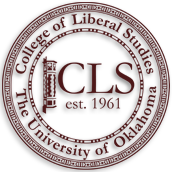Inter: between
Disciplinary: study of an academic field.
Interdisciplinary: study between two or more academic fields.
I am often asked what it means to be a “liberal studies” student. I generally respond that it means to be broadly read, widely knowledgeable, and classically educated. But when I start talking about interdisciplinary study, that’s where I lose them.
Sometimes we use words without giving them much thought. I know what interdisciplinary means. Use it several times a day. What I forget is that while this word is a part of my work life, it probably doesn’t roll off the tongues of most people. (Try saying interdisciplinary three times fast.)
At colleges and universities, we have disciplines, areas where faculty members and students concentrate their time and effort. The word discipline has meaning. It indicates the mental discipline necessary to think in a particular, scholarly way. A novice student must discipline their thinking to the most current knowledge in their elected area of study. That includes becoming familiar with the vocabulary, the discoveries and the particular research methods within the discipline. And most students spend most of their time focusing on one specific disciplinary area. It could be electrical engineering, or meteorology or elementary education. These are single, focused disciplines with a specific outcome. Graduates become engineers, meteorologists or teachers.
Interdisciplinary study implies a broader range of focus, if you will. It is a generalist education where students take a wide variety of courses that may at first seem unrelated but in reality are teaching critical thinking skills. By studying across disciplines, students become knowledgeable in the research methods, the vocabularies and the current knowledge in a variety of academic areas. Students with an interdisciplinary background are able to access and evaluate information from a wider range of intellectual perspectives.
In the College of Liberal Studies, we recognize three broad areas of academic knowledge: humanities, natural sciences and social sciences. Courses in our programs generally fall within one of the three broad areas, and then draw upon knowledge available from several disciplines within the knowledge area. For example, looking at the course list for the College of Liberal Studies, you will see topics such as Evil Acts, Religious Reasons, Humanities of the Ancient World and Mathematics in Liberal Studies. The first course straddles the humanities and social science areas of knowledge. The word “humanities” in the second course is self explanatory. And mathematics is, of course, a foundation for many endeavors within the natural sciences. Although the courses fall in different knowledge areas, they are all woven together by the thread of critical thinking informed by learning across disciplines. This is the foundation for interdisciplinary studies and for the type of degrees that are conferred on our graduates.
By learning to read closely and attentively, as a student you become a more reflective writer. By learning how to gain knowledge from broad academic perspectives, you become a better thinker and scholar. You learn to form solid arguments and then support your position with sound reasoning. Plus, you discover many things about yourself along the way.
How does this help you in the “real” world? That is a topic for another day.
Friday, May 14, 2010
Subscribe to:
Post Comments (Atom)






No comments:
Post a Comment